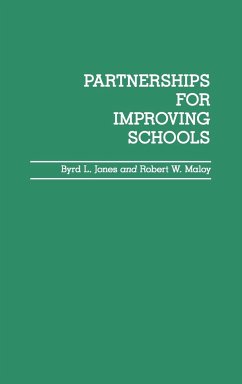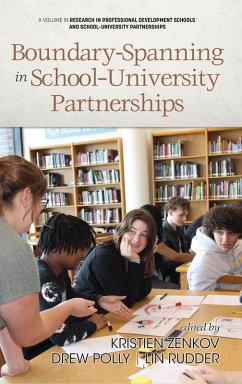There are so many ideas in this book that choosing a few to highlight here is as difficult as tasting only three items from a smorgasborg after a fast. . . . [Jones and Maloy's] comments will prompt knowing nods of the head from most who have experience with partnerships, and they provide starting points for novices' serious consideration. For example, the book raises critical questions about different approaches to partnerships. Should partnerships be primarily grass-roots efforts with little top-down control? If so, what issues are off limits to governance bodies? If partnerships can bring about improvements suggested, should they become a way of life for university-school relations? If so, how can long-term partnerships maintain the insider-outsider perspectives Jones and Maloy argue for so persuasively? . . . Partnerships for Improving Schools addresses these and many other questions. Most importantly, perhaps, it forcefull and directly reminds us that equity is the central criterion agains which to measure educational progress. Teachers College Record In this volume Jones and Maloy present a comprehensive framework for viewing, understanding, and participating in school improvement partnerships. Based on their fifteen years of experiences with various collaborative projects, the authors demonstrate ways to sustain agreements over time through mutually beneficial activities between teachers and members of outside organizations. Interactive partnerships generate formal and informal learning for participants that lead to evolving understandings about personal behaviors and organizational climates, and the new purposes yield strategies and structures for educational reform.
Hinweis: Dieser Artikel kann nur an eine deutsche Lieferadresse ausgeliefert werden.
Hinweis: Dieser Artikel kann nur an eine deutsche Lieferadresse ausgeliefert werden.








